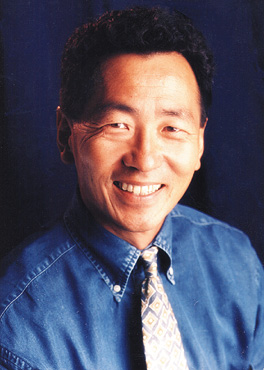|
ASIAN AMERICAN BUSINESS |
CONTACT US
|
ADVERTISING INFO
© 1996-2013 Asian Media Group Inc
No part of the contents of this site may be reproduced without prior written permission.
MICROSOFT'S ASIAN PIONEER
PAGE 8 of 10
GS: What was the interface between John Shirley's role as president and your role?
Oki: Everyone has to report some place, so everyone reported to John.
GS: You had the authority to lay off and hire people?
Oki: Yeah.

GS: Isn't it a bit odd to have someone in charge of marketing restructuring the organization?
Oki: Well, no. The sales offices were under my area of responsibility.
GS: What effect did your changes have on Microsoft's U.S. operations?
Oki: We became profitable.
GS: What specific changes did you make?
Oki: Putting in place good management, number one. Getting rid of people that were really not consistent with the culture of Microsoft and hiring people who were. Getting creative in terms of how we could get the foot soldiers out in the field and not totally distort the business model so that in fact we could achieve the profit target we had. There were a lot of things we did. By that time we were very heavily a packaged goods company, selling shrink-wrapped product in retail outlets. ThatŐs a very different business than licensing software to hardware manufacturers. When I inherited the division, the cost of goods was totally out of control. We went on a crusade to get cost of goods sold below 20% and we achieved that. Within a year that provided 20 points of gross profit margin to do other things with.
GS: Tell us about the channel marketing strategy you adopted for Microsoft.
Oki: That entailed everything from rebate schemes to how marketing funds got applied to the channel players--the retail outlets and the distributors carrying product. It's a discount structure, it's a lot of things in terms of getting them to focus on your products versus your competitors' products.
GS: Is marriage another reason for the change?
Oki: No, I was always based out of Seattle. When I say I lived on an airplane, I literally lived on an airplane, I was constantly flying. One year I was Pan Am's number one frequent flyer.
GS: When did you get married?
Oki: When I was 40.
GS: How did you meet your wife?
Oki: My sister-in-law was working for her. She set us up on a blind date.
[CONTINUED BELOW]
GS: Is she Japanese American?
Oki: Yeah... Oh you mean my wife? My sister in law is Japanese American. My wife is not, she's caucasian.
GS: What are your sons' names?
Oki: Alexander and Nicolas.
GS: What was your final title?
Oki: Senior vice president, sales, marketing and service.
GS: What was Gates's reaction when you said you were resigning?
Oki: He was resigned to the fact that I was resigning.
GS: You had been bringing it up for some time?
Oki: Yeah, but I guess it didn't really register until he got the letter. We talked about it. I said, Look, it's time. There's nothing you can say or do to keep me. I would be doing a disservice to the company. I can't be married to Microsoft and be married to my wife.
GS: Did your wife play a role in your decision to leave?
Oki: None at all. It was my decision. In fact I think Laurie probably wanted me to stay working, but it was just time. There was probably a little bit of a burnout factor, although not a lot. You put in 10 really hard years, and when you have two kids and you start thinking about how you want to spend time with them and have the flexibility of doing various things--itŐs just a hard thing to deal with. I think some people deal with it a lot better than I do. PAGE 9
| "There's nothing you can say or do to keep me. I would be doing a disservice to the company. I can't be married to Microsoft and be married to my wife." |
